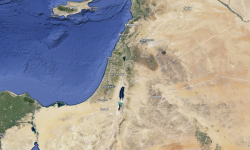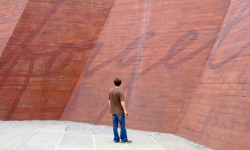
The 2018 Census confirmed we now live in a country where less than half the population consider themselves to be Christian. Lynne Taylor says we can rail against that, or we can ask big questions about how we live as Christians and the church in this new context.
I cannot imagine that many people were surprised by the recently released 2018 Census data on religious affiliation in New Zealand. Christian religious affiliation has been trending down basically since it was first measured, but most notably from the 1960s when it first dropped below 90% (see Figure 1).

This decrease in the proportion of Christians is countered by a rise in those who state that they have no religion (48% in 2018). As expected, this is now significantly higher than the proportion of those who state a Christian affiliation (37%). There has also been a slight increase in the number of people of other religions: Buddhists now represent 1.1% of NZ population; Hindu 2.6%; Islam 1.3%; Jewish 0.1%; Māori religions 1.3%; New Age 0.4%; Other 1.9%. (See Figure 2)

What about Baptist statistics?
In terms of the Baptist denomination, the decline in affiliation appears even more marked. Just 39,030 people indicated that they are Baptist, representing 0.8% of the total population (down from 1.3% in 2013) and 2.2% of all Christians (down from 3.0% in 2013). While our annual Baptist statistics show decreasing attendance and membership, that does not account for all of the 2018 Census decline, some of which is likely due to a change in the way that the religious affiliation question was structured.1 Some of the decline in Baptist affiliates would be countered by the increase in the number of people who reported that they were ‘Christian’. (This increased by a massive 42% from 216,177 to 307,936.)
That said, it is clear (but shouldn’t be new news) that today there are less people who call themselves Christian. I suspect what this means is that, as others have wisely commented,2 we are getting a better read on the reality of our contemporary context. Those who indicate a Christian religious affiliation are more likely to be connected to the Christian faith and, perhaps, a church.3 Calling oneself a Christian is no longer the default religious position. The decline that has been steady since the 1960s has reached a very significant marker point: Christianity is no longer the majority religious position in New Zealand.
Our new reality
We can look at this new reality in at least two ways.4 We could see our minority status as a problem that needs to be solved, or as a condition to be managed. If we see this as a problem, we are invited to find solutions—things that will return New Zealand to a perceived or actual Christian heritage: a return to Christendom. Such an approach tends to look back, seeking to reclaim an idealised past. It is more likely to be confrontational, pitting present against past, and Christian against non‑believer.
I suggest that it would be more helpful to think about what the 2018 Census data tells us, not as a problem to be solved, but as a condition to be lived within. What does it mean to be a minority faith? How might we live faithfully as salt and light, amid a diversity of opinion and action? How might we be attentive to the good that God is working in the world God loves—good that is occurring beyond, as well as within, the walls of the church? Seriously considering such questions may just open up new possibilities and ways to engage in the mission of God—a mission that involves so much more than our own faltering attempts.
What Christians can offer
As I think about our contemporary situation, I wonder what we have to offer. Two things immediately strike me. One relates to spirituality and the second to well-being, both of which are recognised as valuable in our wider New Zealand context.
One of the rich blessings of Aotearoa New Zealand is our bicultural heritage. Because of our embedded appreciation of Māoritanga, there is in New Zealand, more than in many so-called secular countries, an appreciation of spirituality, of wairua. Many New Zealanders recognise the significance of spirituality, and as Christians we have rich taonga that can resource people’s spiritual development.
A second contribution relates to human flourishing. Well-being is a recognised priority of our government. Again, Christians have much to offer here. In John 10:10, Jesus says that he came that we might have life and have it to the full. What would happen if we recaptured human flourishing as a core goal of the church? Christians might be invited to tell the stories of their own personal flourishing. Churches could recognise and live into their ability to provide environments, care and resources that help others to flourish, regardless of whether they would call themselves Christians.
These sound like the sorts of things that just might be attentive to what God is up to in our world. Things that invite our participation. Not to rescue a ‘dying’ religion. But because God continues to be at work in the world God loves.
Contributor: Lynne Taylor
Lynne is the Jack Somerville Lecturer in Pastoral Theology at the University of Otago and researcher for the Baptist Churches of New Zealand.Visit Lynne’s website or follow her at:
Footnotes:
- In both 2013 and 2018, the question stated, “What is your religion?” For many Christians, the default answer would be ‘Christian’ rather than specifying a particular denominational affiliation. In 2013, there was another text box for adding additional detail. In 2018, that additional detail needed
- to be included in the initial response.
- See, for example, Sandy Kerr’s commentary.
- At the same time, there remains a discrepancy between the number of people who state a Christian religious affiliation and the number of people in church on any given Sunday (various measures suggest 10-20% of the NZ population attend church at least monthly).
- Here I’m drawing on Brian Harris’s helpful distinction between ‘problems’ and ‘conditions’.


